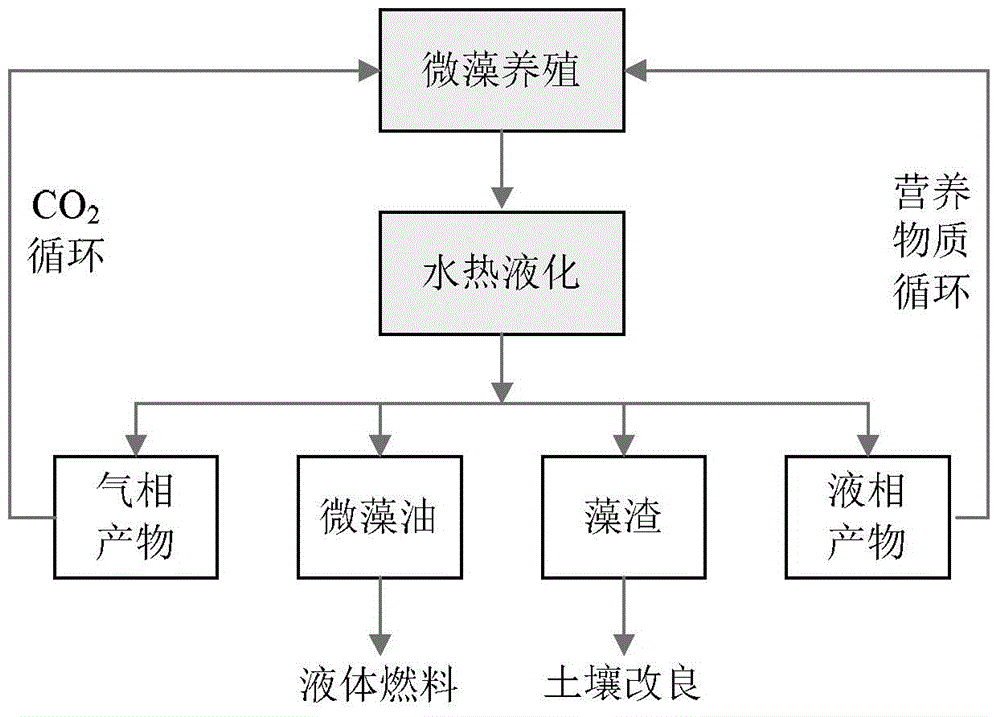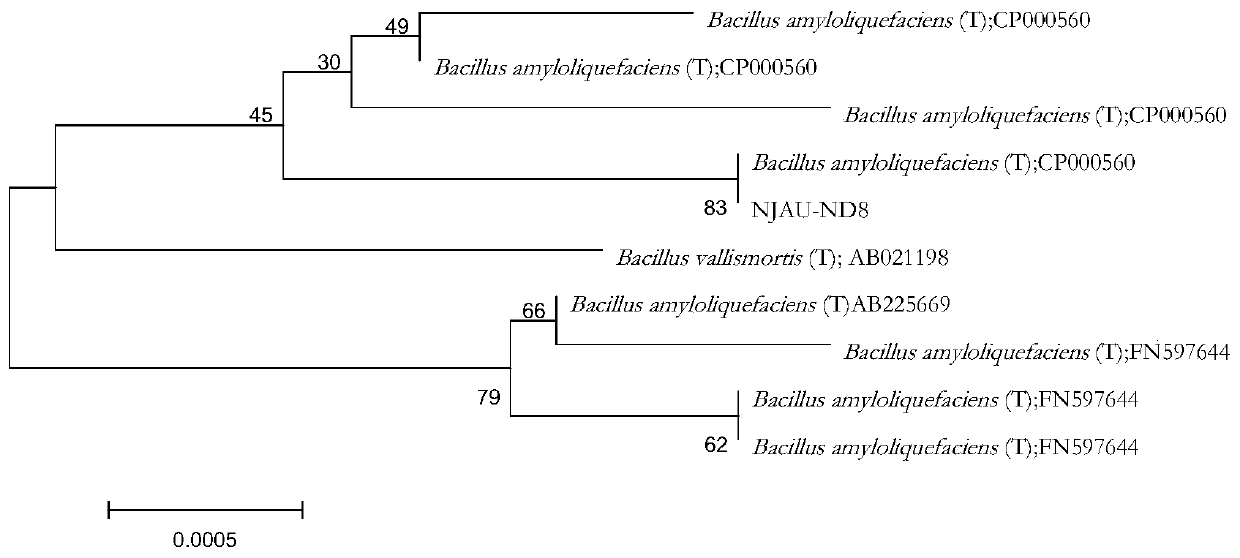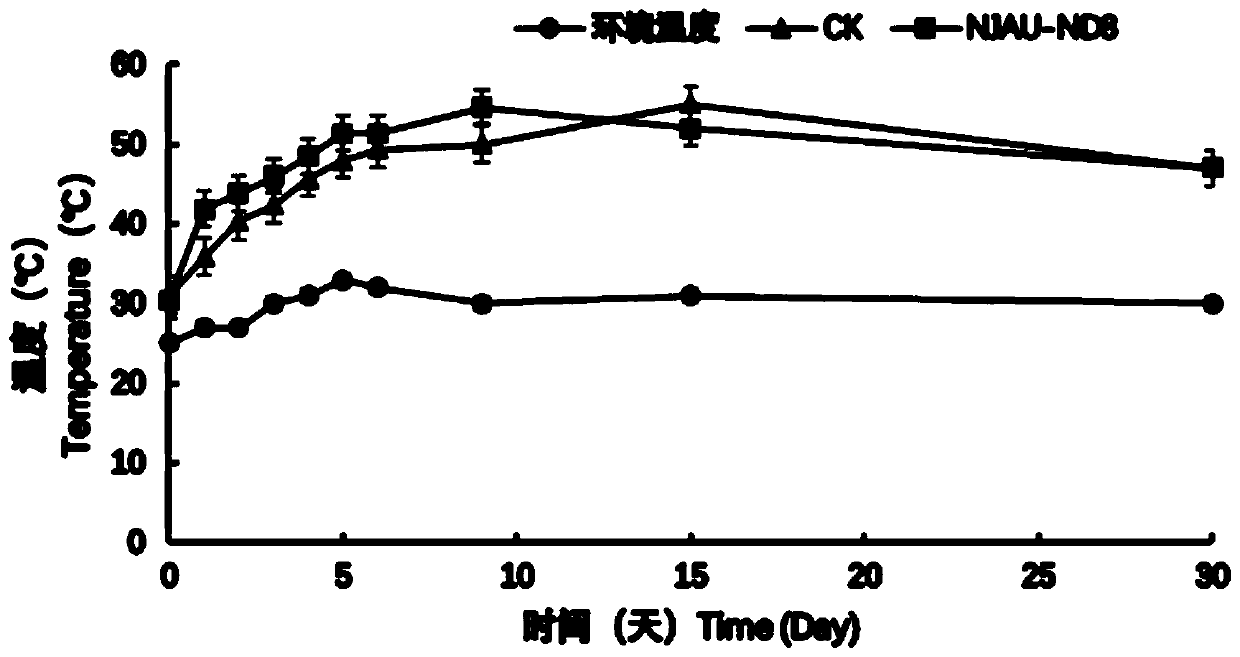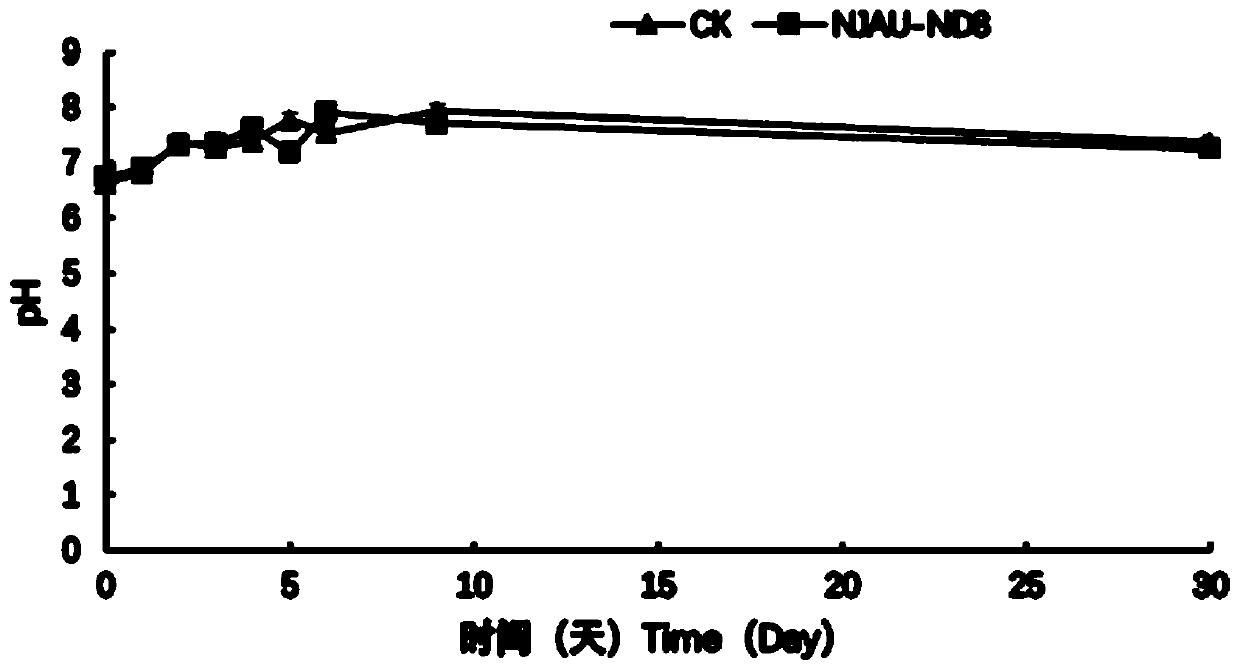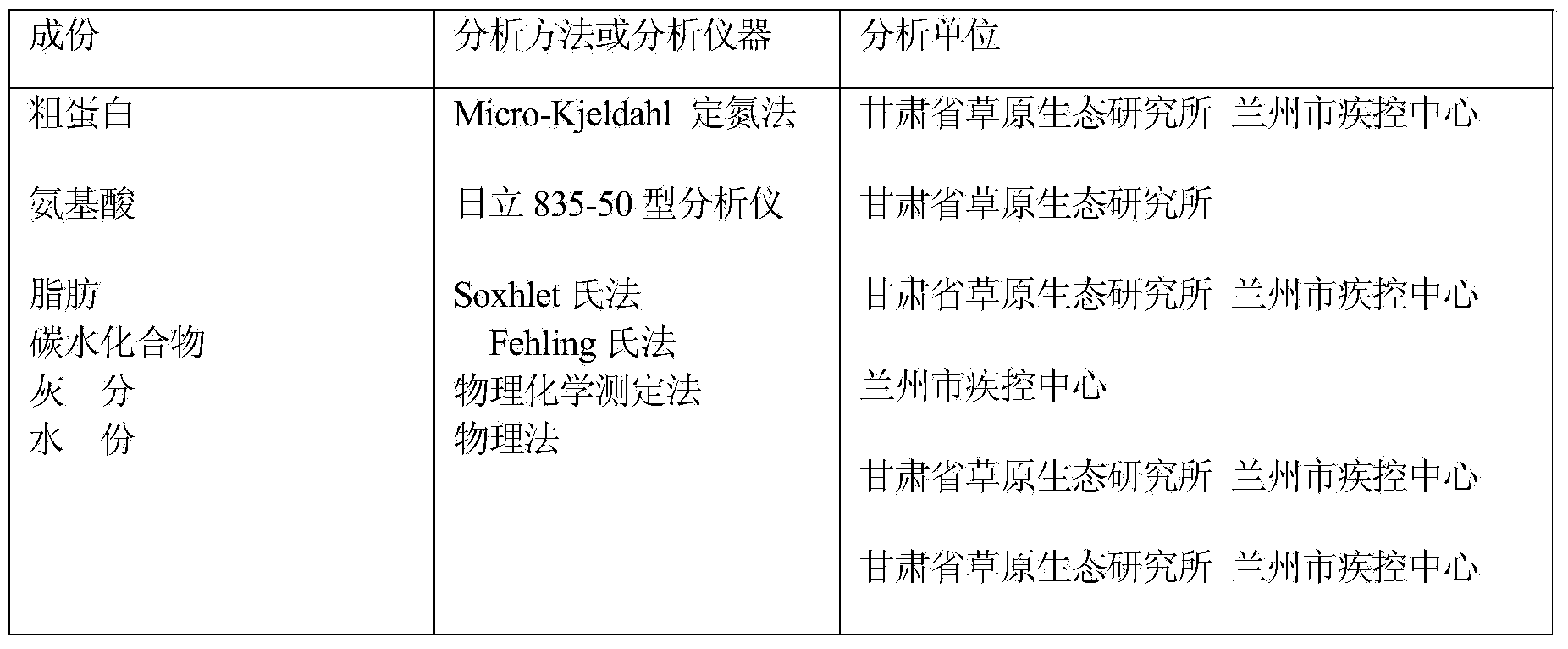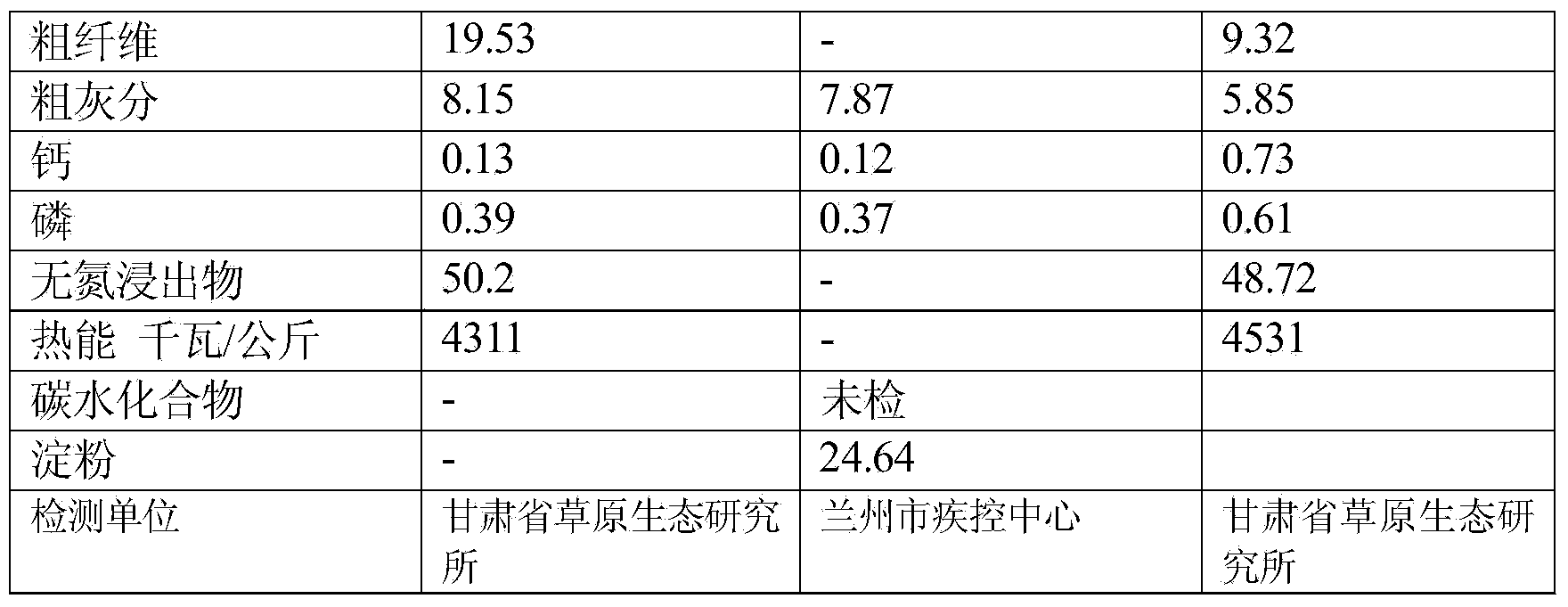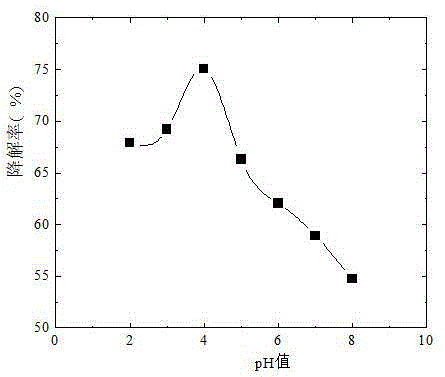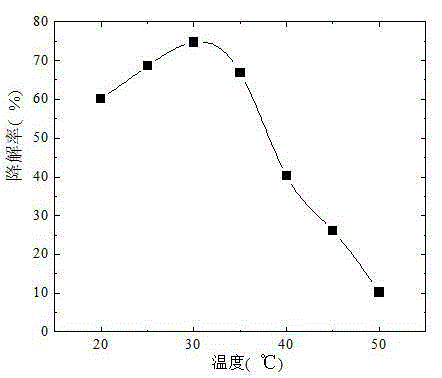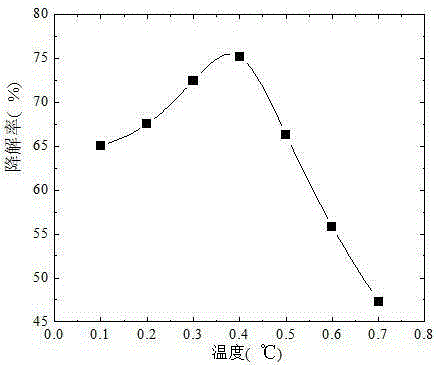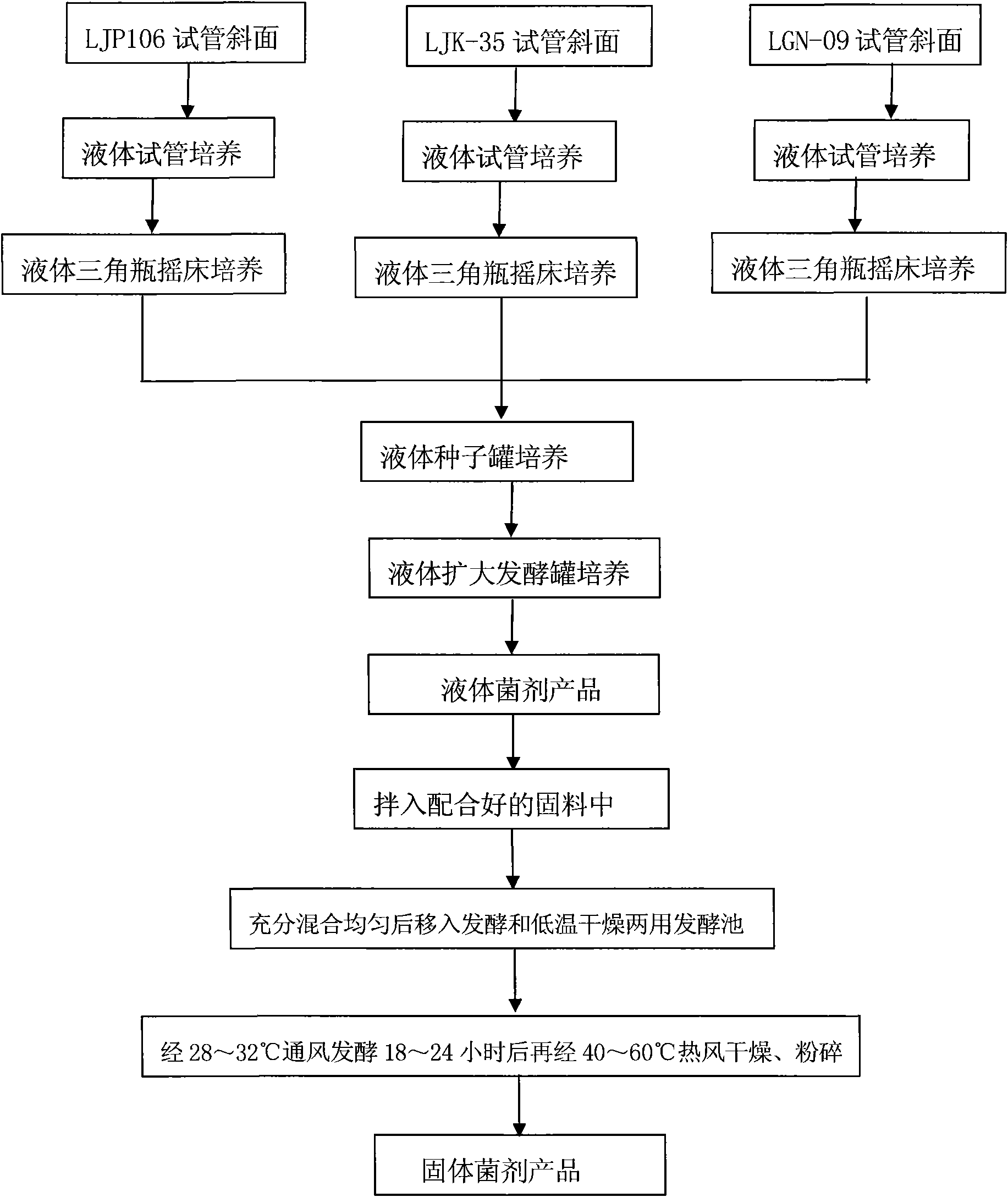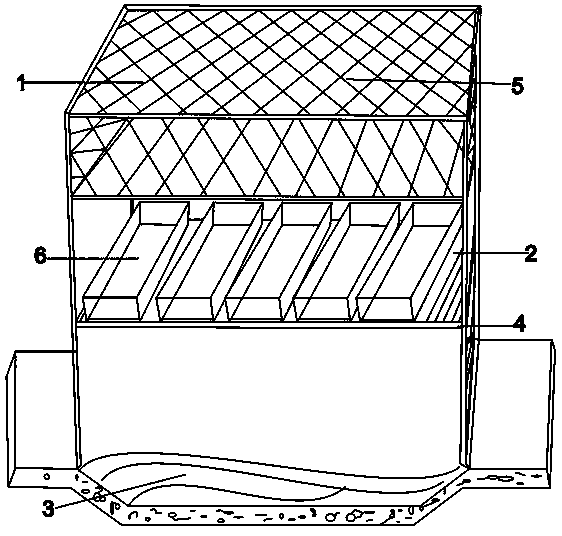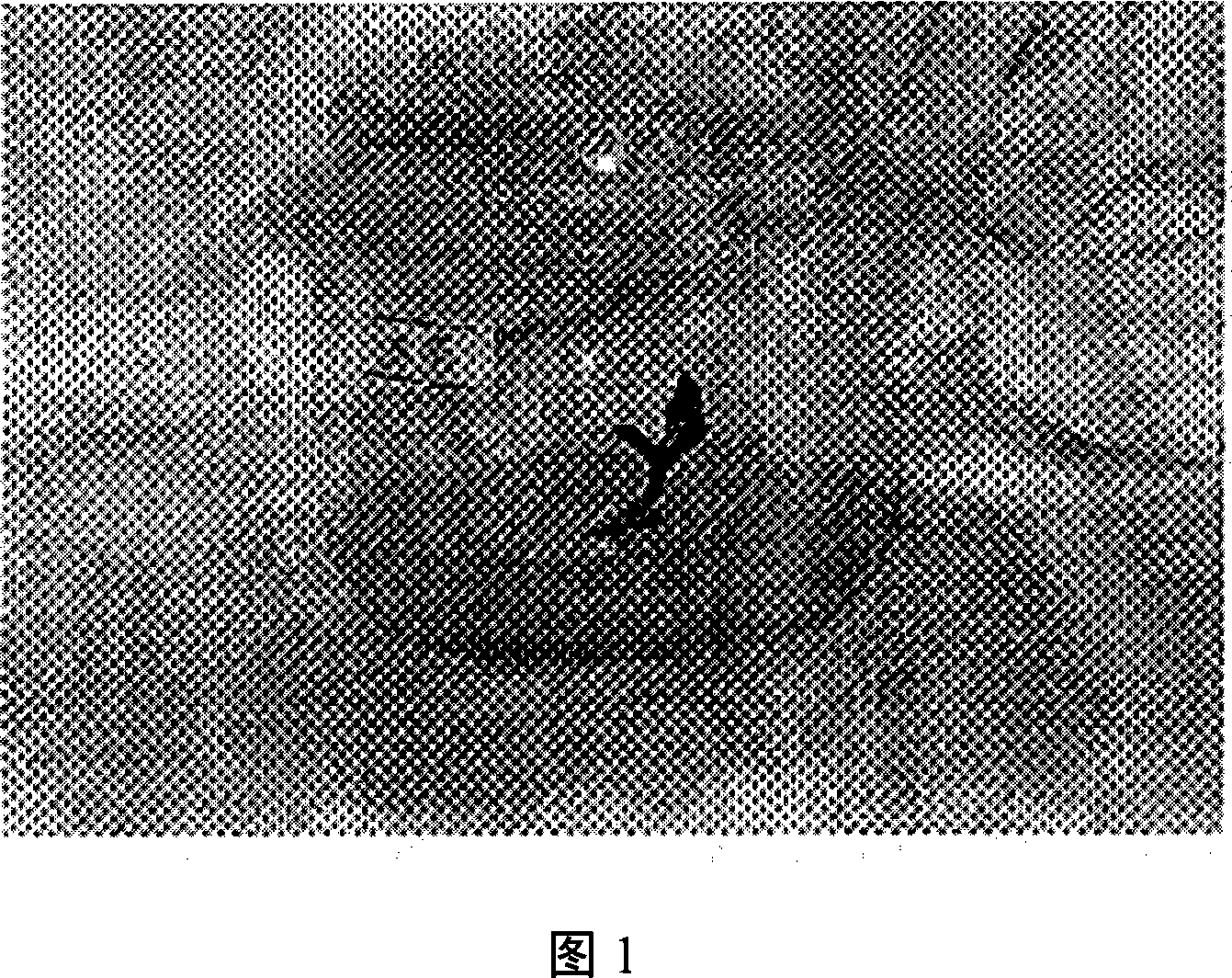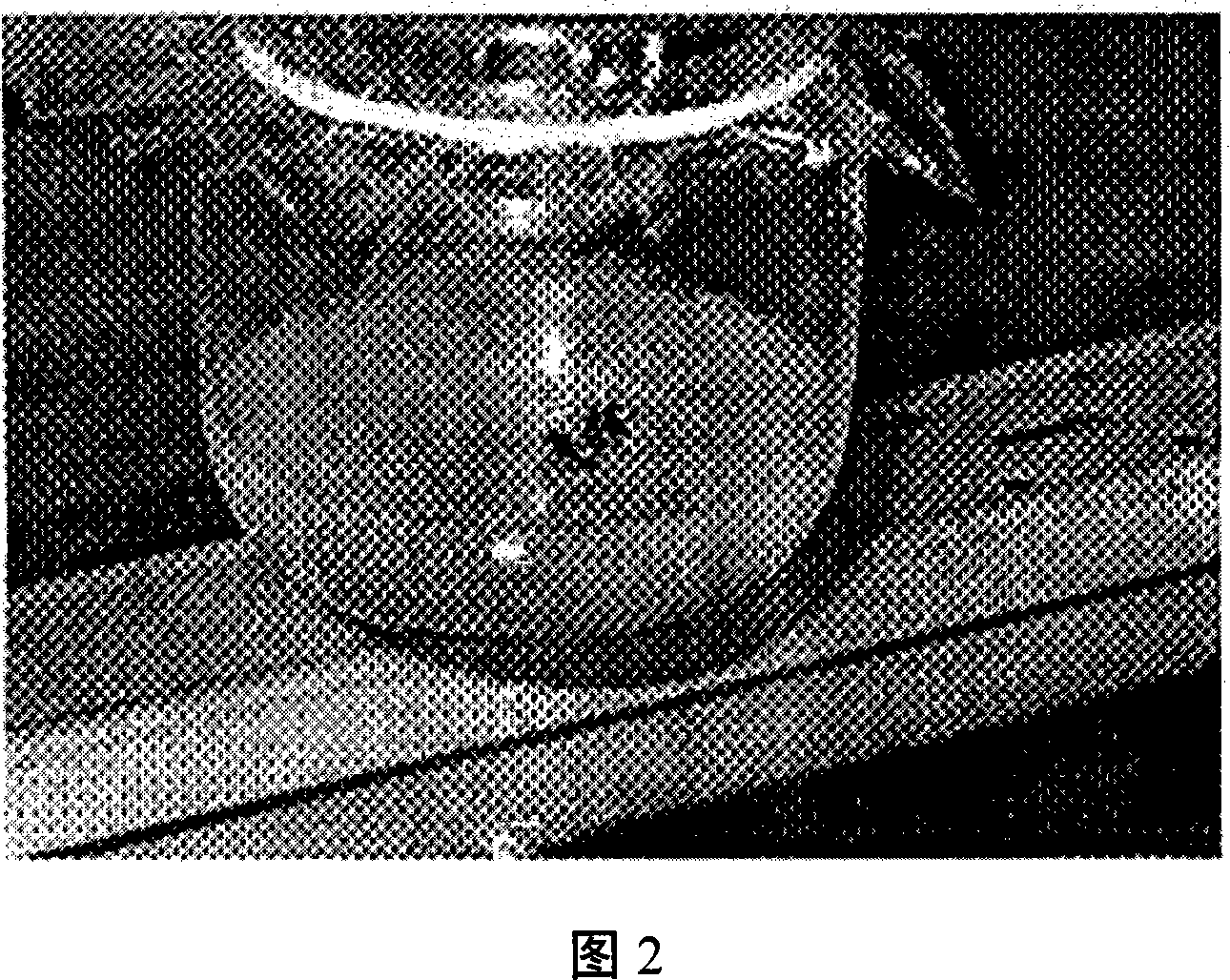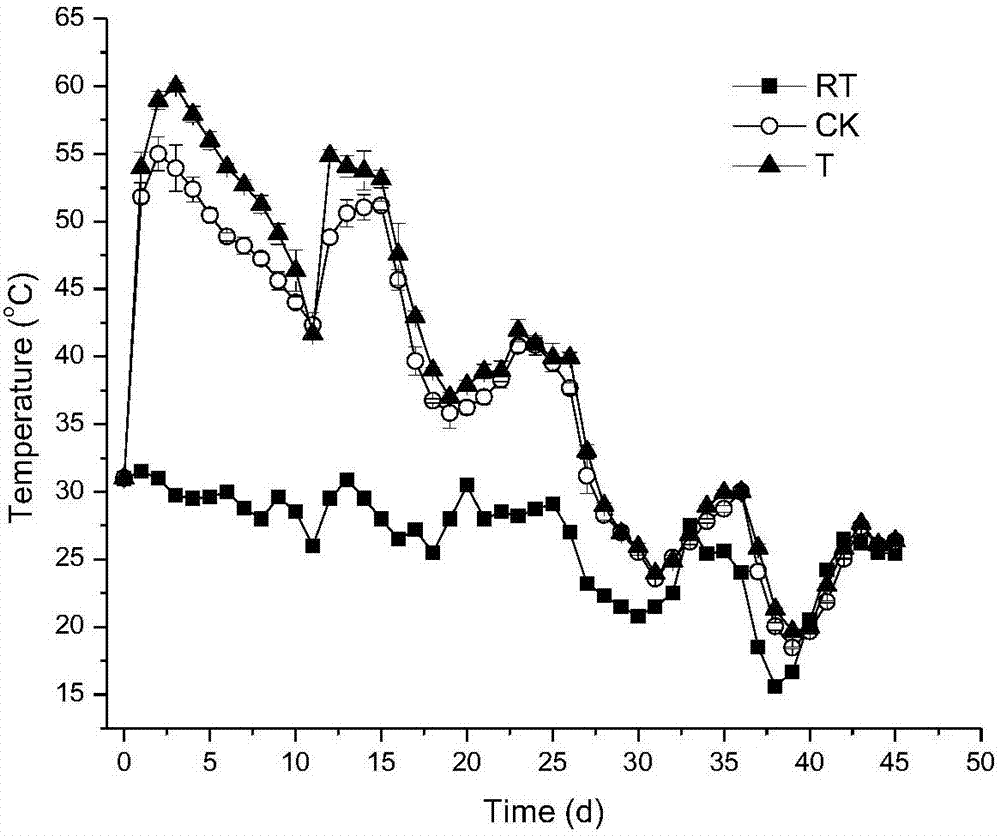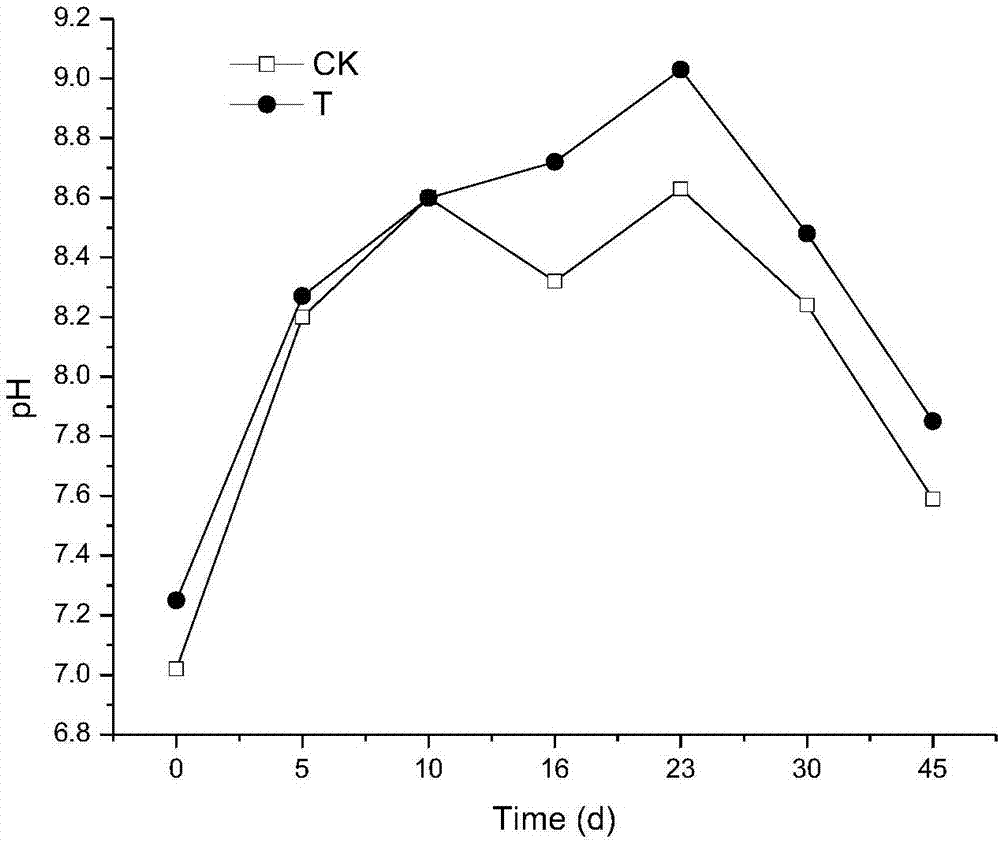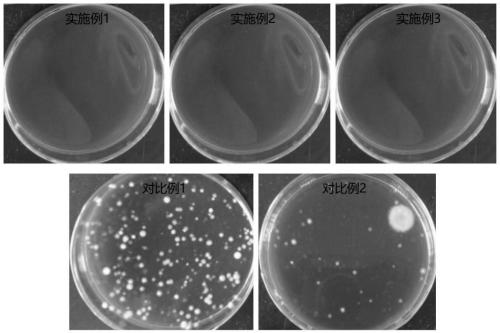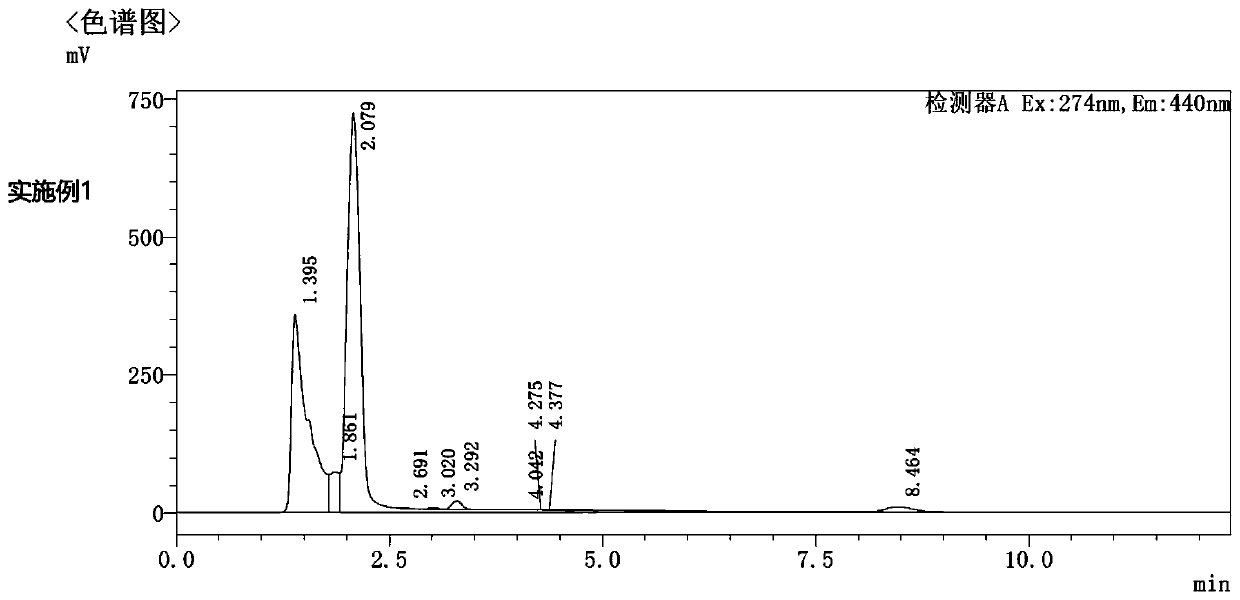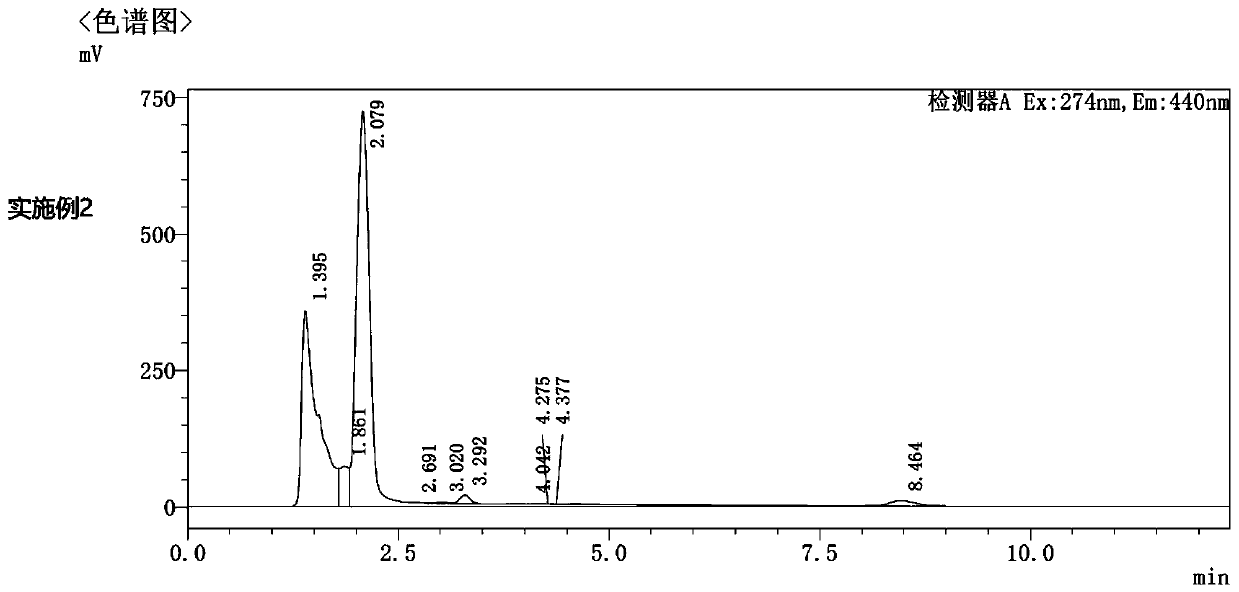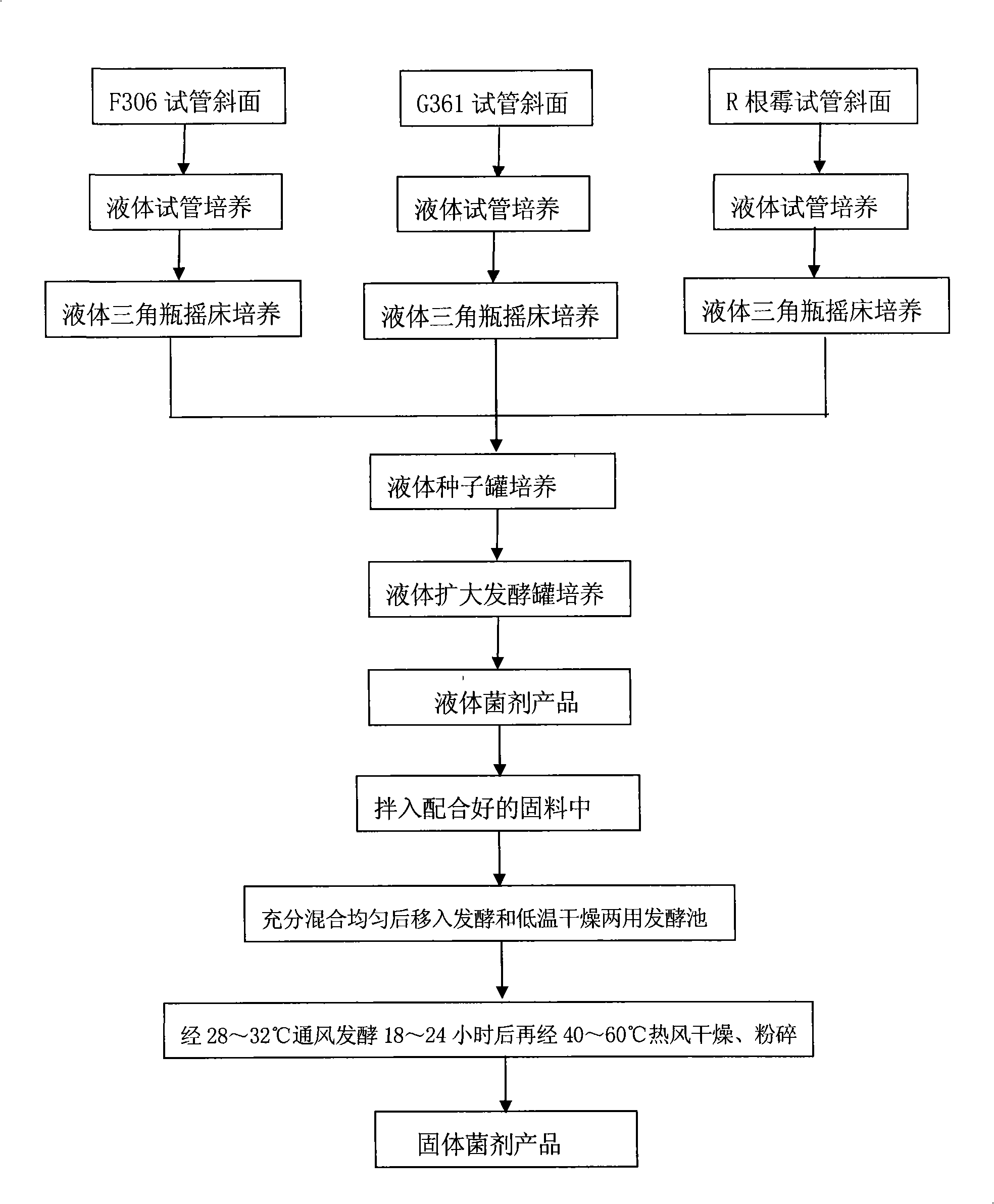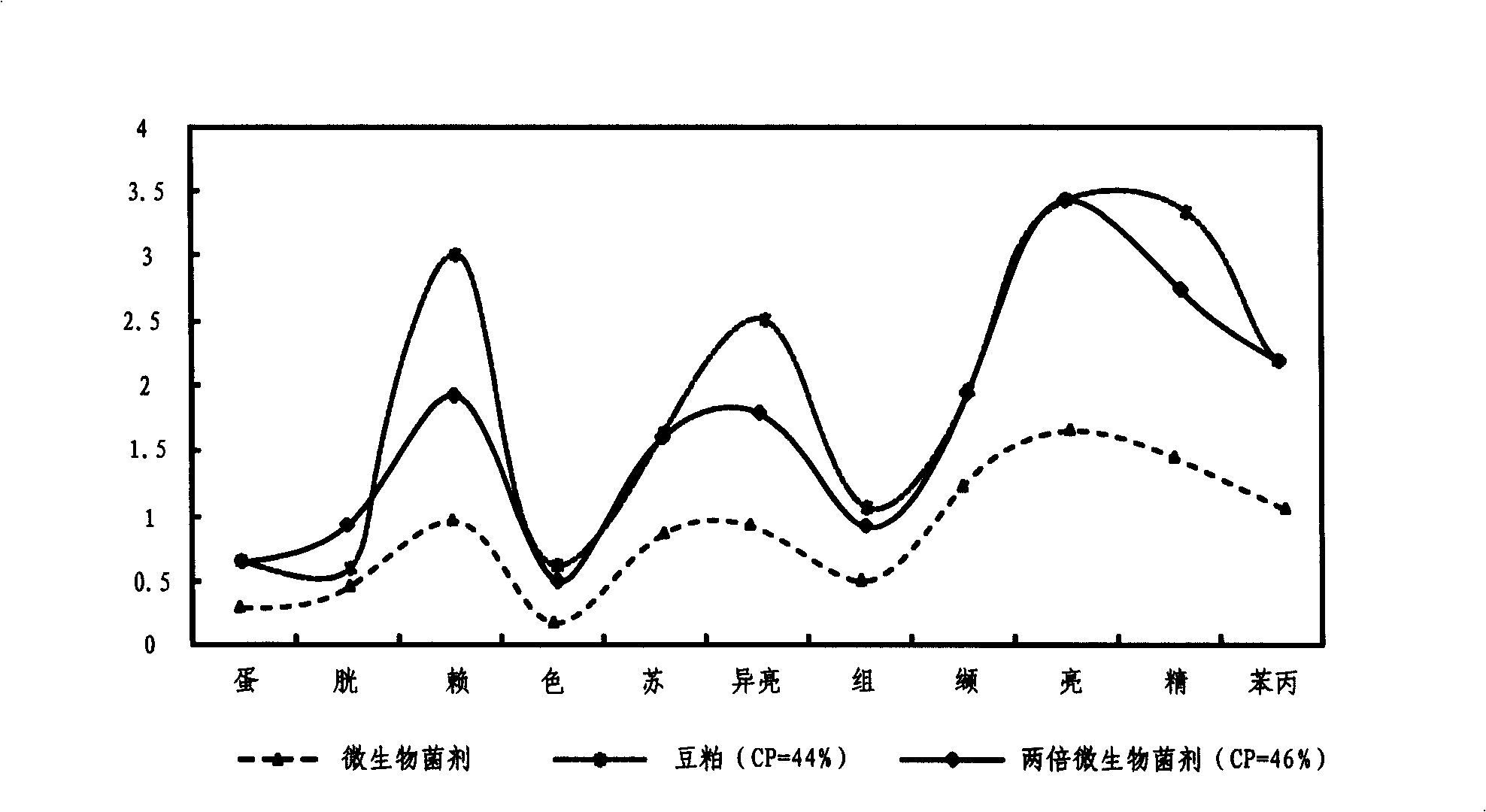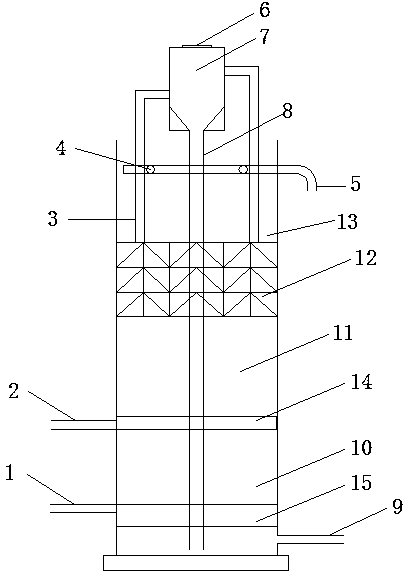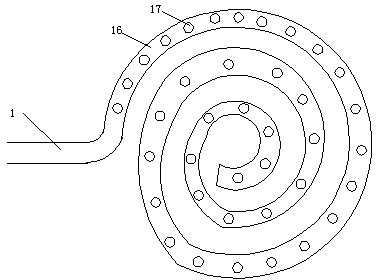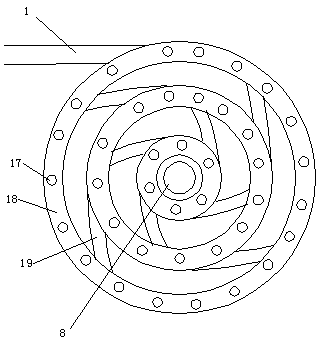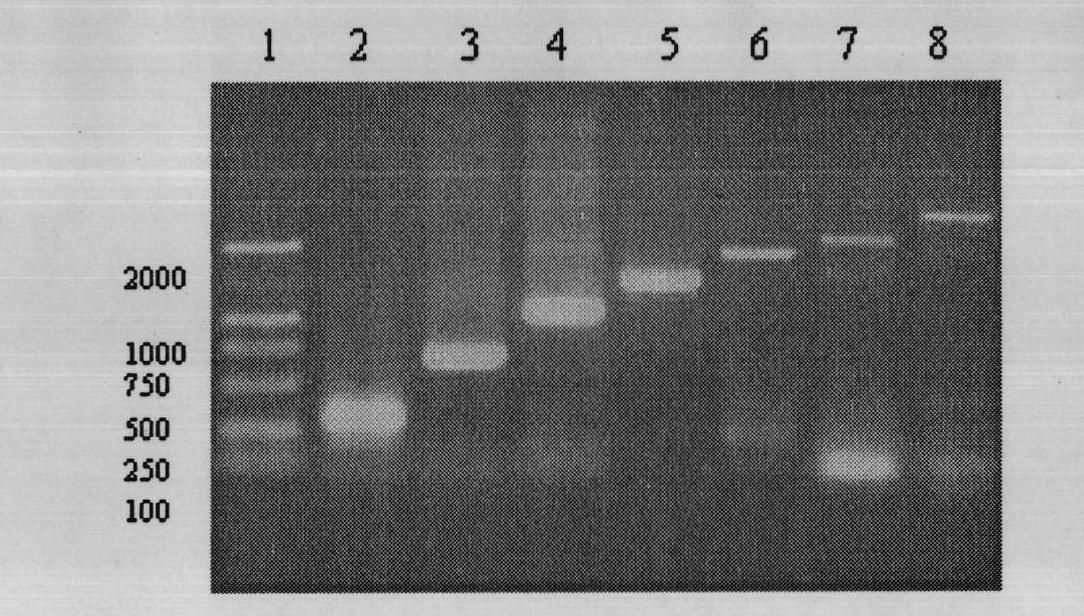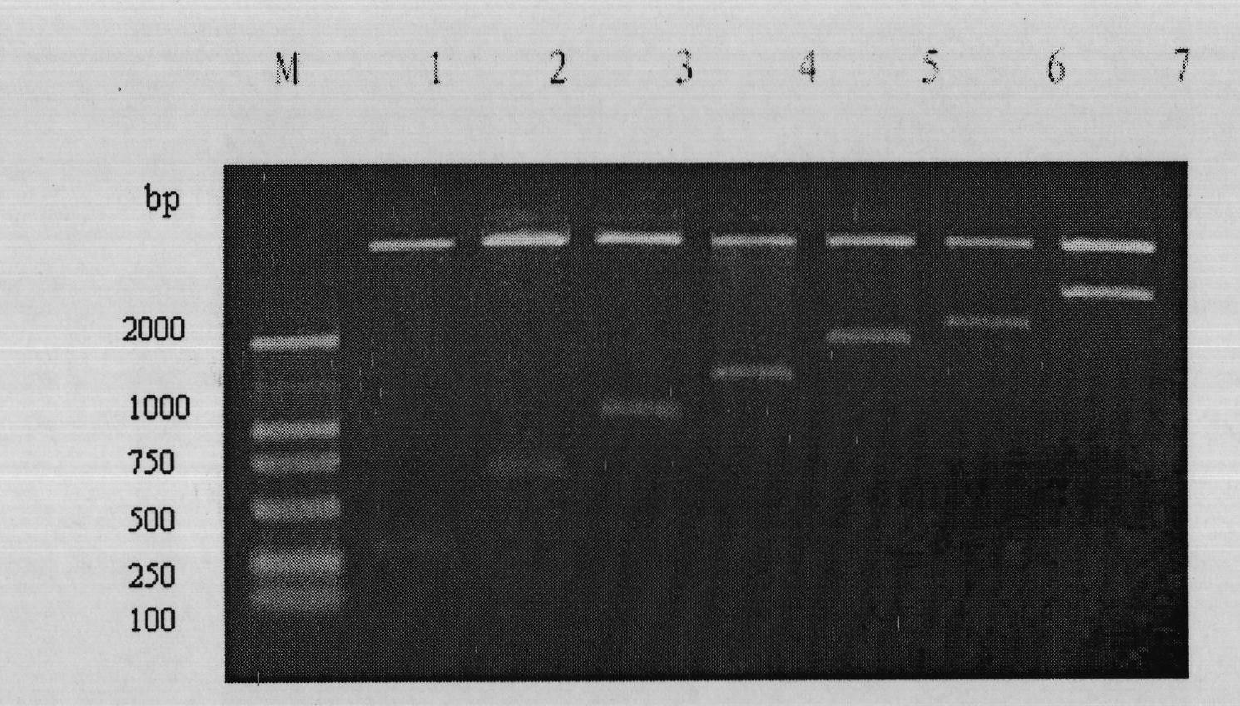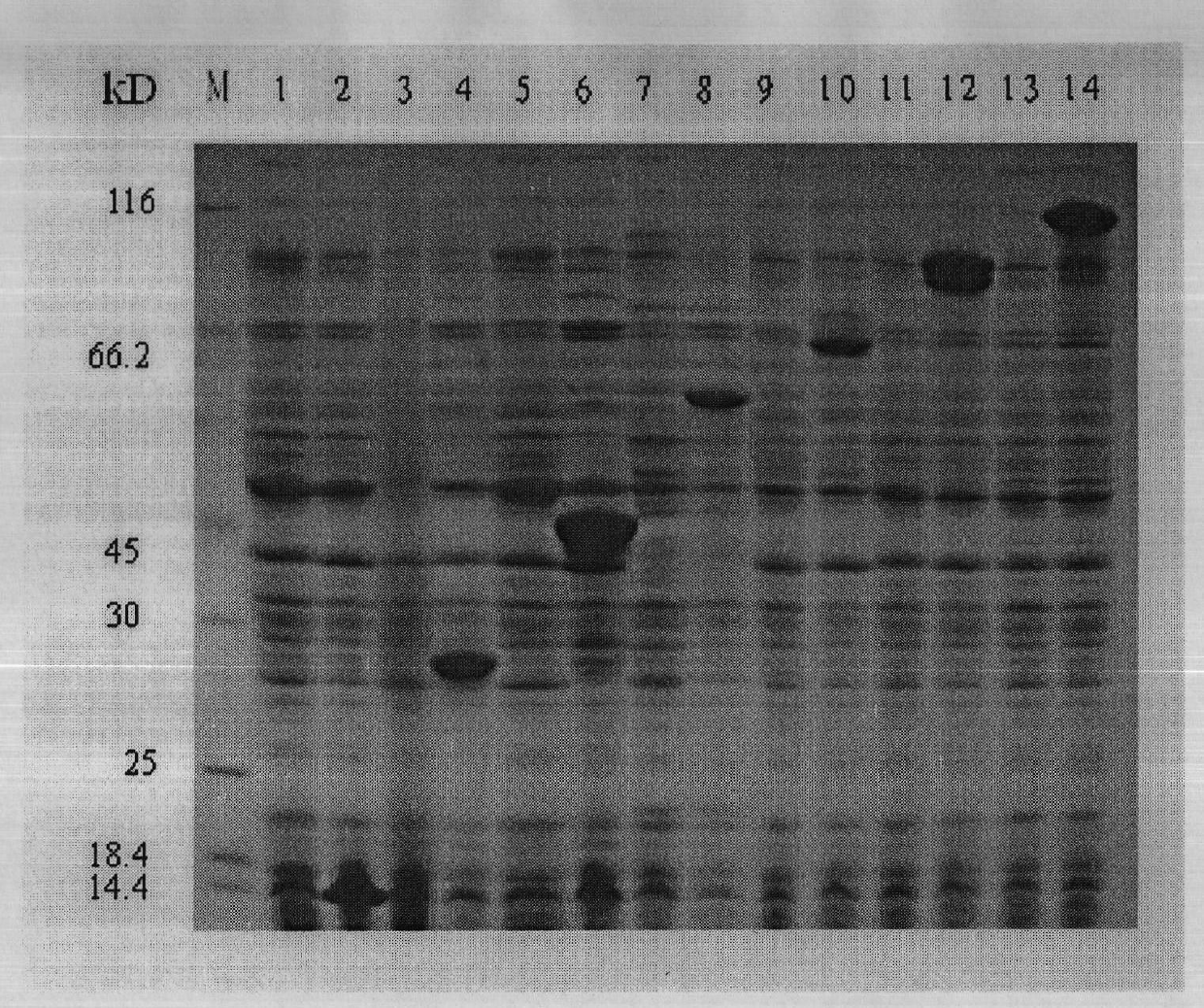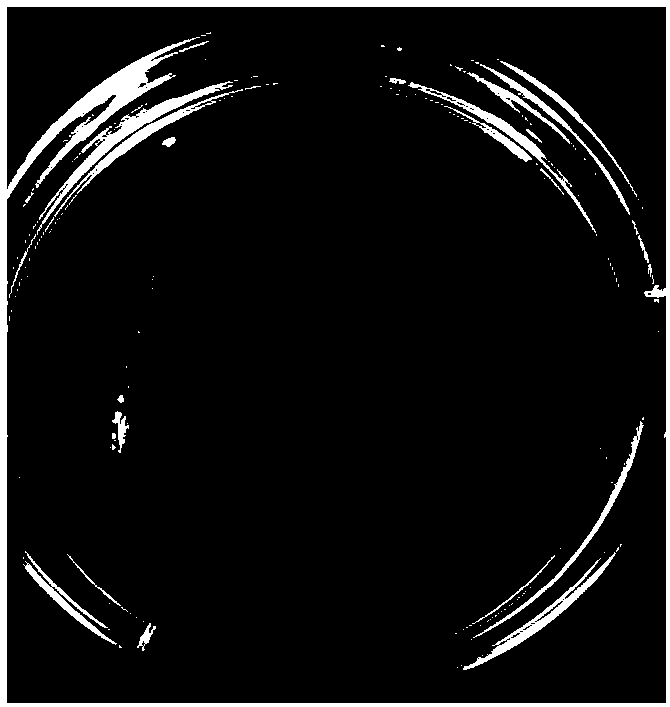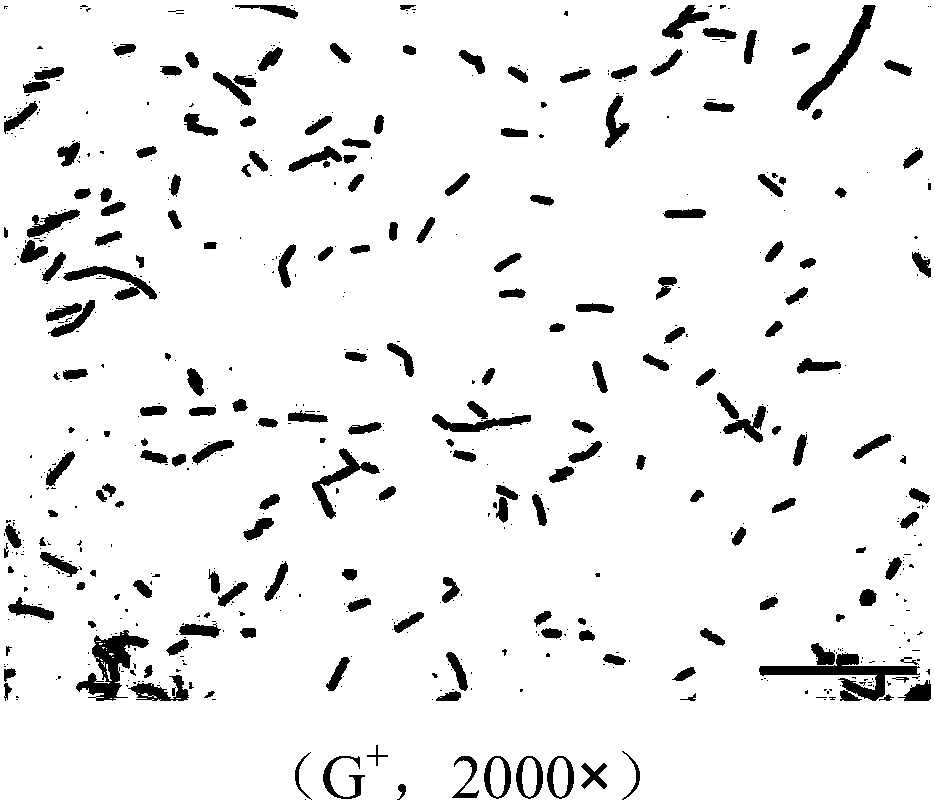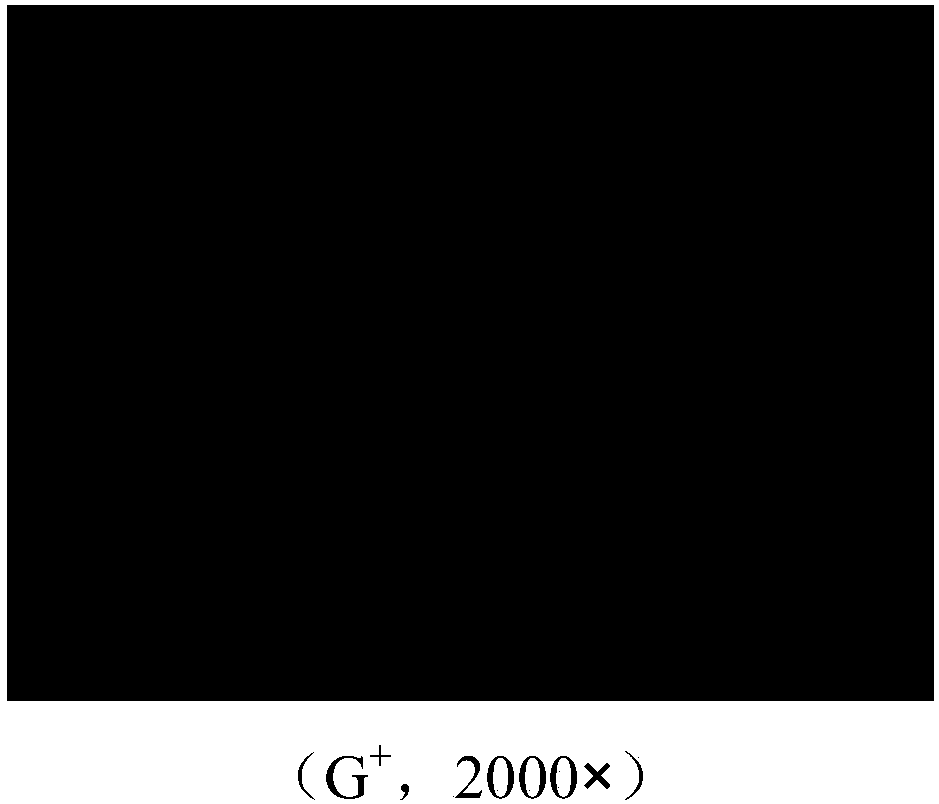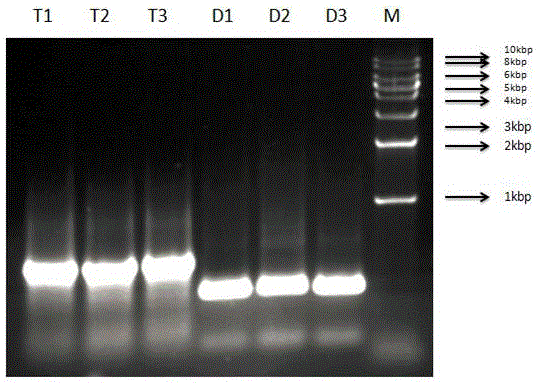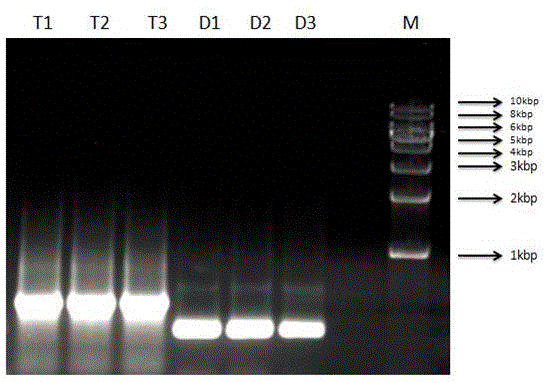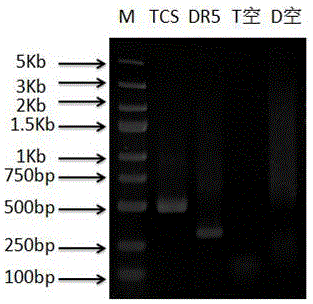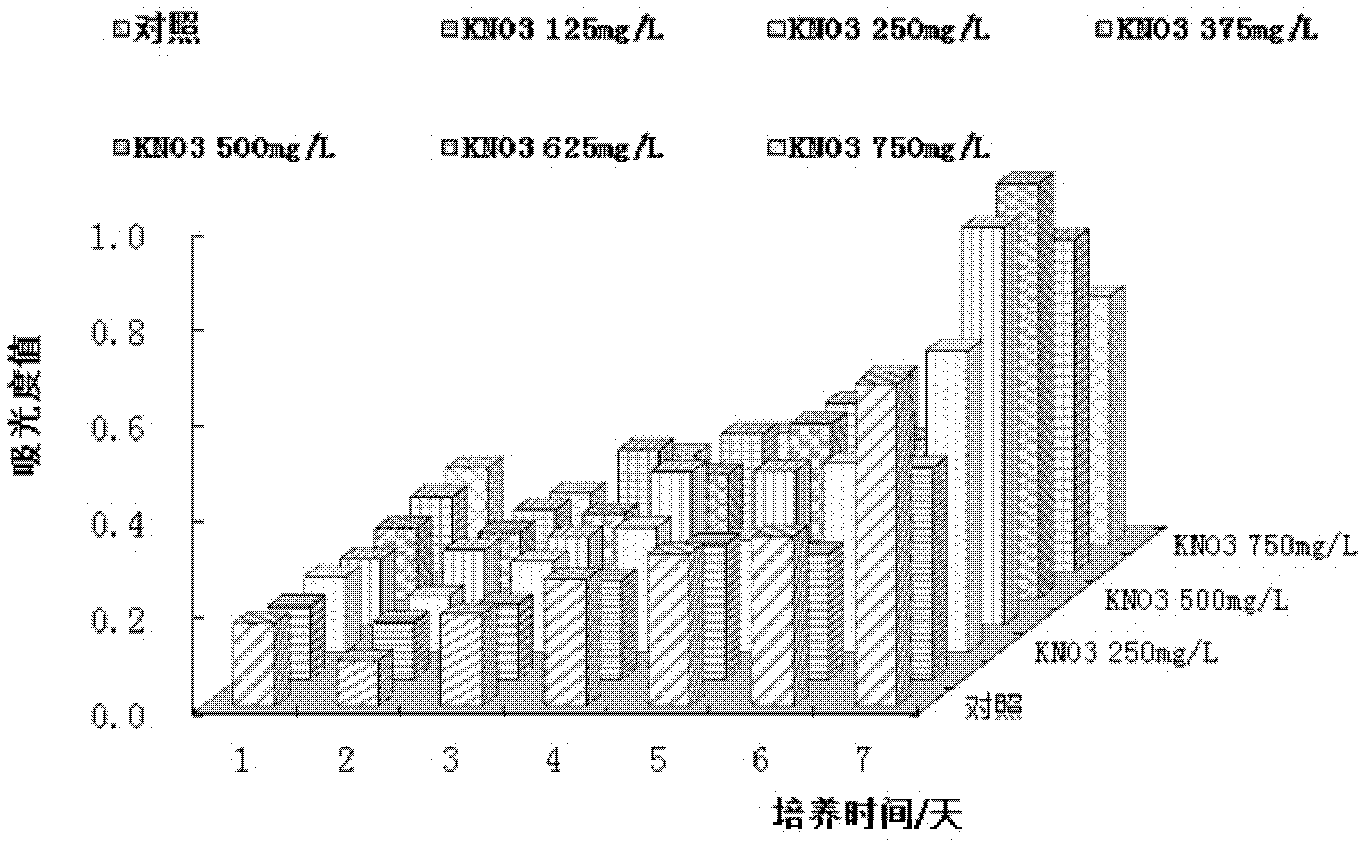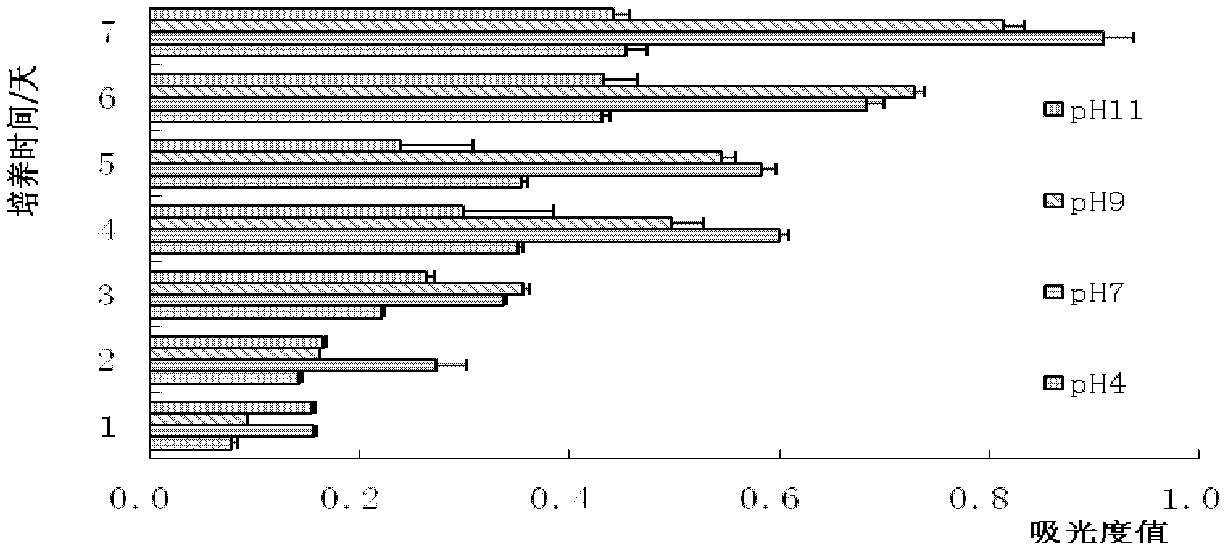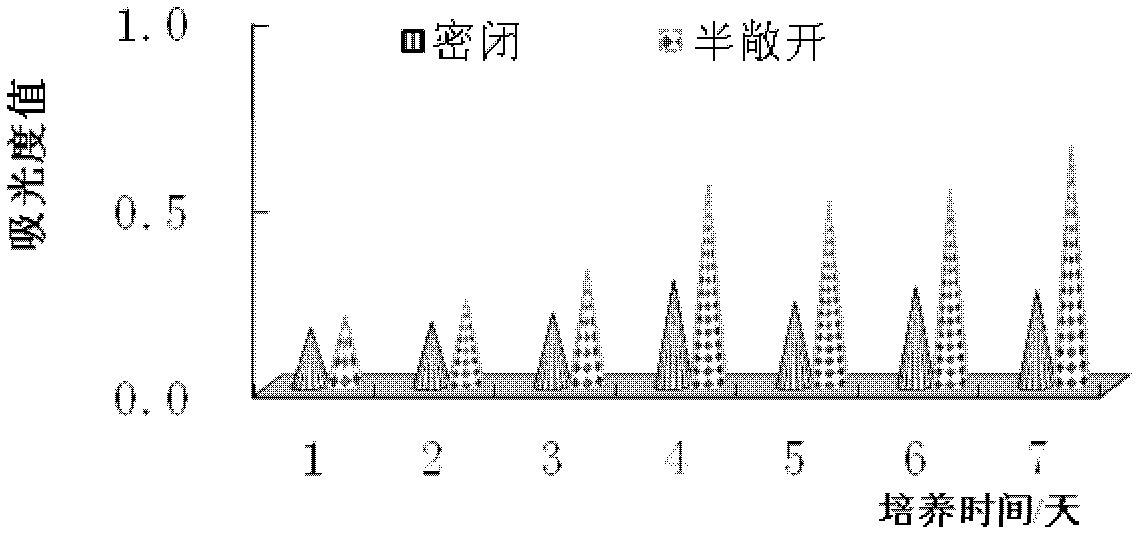Patents
Literature
Hiro is an intelligent assistant for R&D personnel, combined with Patent DNA, to facilitate innovative research.
226results about How to "Fast growth and reproduction" patented technology
Efficacy Topic
Property
Owner
Technical Advancement
Application Domain
Technology Topic
Technology Field Word
Patent Country/Region
Patent Type
Patent Status
Application Year
Inventor
Rapid method for constructing river way water ecosystem
InactiveCN105565584ALow costHigh transparencyWater resource protectionEnergy based wastewater treatmentHydrometryEutrophication
The present invention belongs to the technical field of water ecological restoration, and specifically discloses a rapid method for constructing a river way water ecosystem, the method includes the following steps: 1, collecting of to-be-repaired river way water ecological information; 2, detailed analysis of pollution information, sewage interception reoxygenation and blackness and odor removal by microbial decomposition; 3, planting of emergent proper aquatic plants, submerged plants and the like according to water and hydrological information; 4, control of algae by aquatic animals; and 5, water ecosystem maintenance; wherein aquatic plants are usually harvested in November each year, and plant body residues are cleaned up in early spring. Through combination of an ECO-EGG plug-flow aerator and the constructed river way water ecosystem, physical, chemical and biological-ecological approaches are effectively combined for phased treatment, water quality is rapidly improved, water eutrophication is controlled, water self-purification capacity can be improved, the water ecological structure and function can be restored, water quality can be long term and effectively improved, meanwhile the effectiveness, long effectiveness, economical efficiency and ecological compatibility of polluted water treatment can be unified.
Owner:上海库克莱生态科技有限公司
Method for preparing protein feed by fermentation on straw and cake using aerobic mixed bacteria
InactiveCN102488084AStrong starch saccharification abilityPlay a complementary roleFood processingAnimal feeding stuffBiotechnologyBacillus licheniformis
The invention mainly relates to a method for preparing a protein feed by fermentation on straw and cake using aerobic mixed bacteria. The method for preparing a protein feed by fermentation on straw and cake using aerobic mixed bacteria is mainly characterized by comprising the following steps of: uniformly stirring straw, cake, wheat bran and corn flour, and enabling the water content thereof toachieve 50-60%; adding ammonium sulphate having an amount of 0.5-4% relative to the total amount of dry materials and urea having an amount of 0.5-3% relative to the total amount of dry materials; adjusting pH to 5.5-6.5 by 1% lime water; joining the raw materials in bacterial solution having an amount of 8-12% relative to the total amount of dry materials, obtained by mixing geotrichum candidum,lactic acid bacteria and bacillus licheniformis, and having a ratio by weight of 50-60% of geotrichum candidum to 30-35% of lactic acid bacteria to 5-10% of bacillus licheniformis; and fermenting for18-24 hours in a ventilation condition at a temperature of 28-32 DEG C, so as to prepare the fermented protein feed. The method for preparing a protein feed by fermentation on straw and cake using aerobic mixed bacteria disclosed by the invention utilizes modern bio-technology, optimizes the best combined bacteria, has simple and convenient production process, saves equipments and energies, and reduces the needed investment.
Owner:甘肃鑫盛源牧业科技有限公司
Highland and severe cold areas sewage treatment method
ActiveCN1789179AHigh broad spectrumIncrease concentrationTreatment with aerobic and anaerobic processesMultistage water/sewage treatmentEmission standardWastewater
A method for treating wastewater in high-plateau and high-cold area, the wastewater and garbage leakage liquid being discharged through processes of physicochemical, biological and ecological steps. In the biological steps, carrier biological reaction device is employed, and by using immobilization technology of microporous biological carrier (WZT) and microorganism to improve the treating effect. In the ecological step, the artificial ecological wetland is employed. The method can treat wastewater especially wastewater in high-plateau and high-cold area with distinct effect because the critical technology of carrier biological reaction device and artificial ecological wetland can suit the climatic condition in high-plateau and high-cold area and it combines the physicochemical, biological and ecological steps organically, the wastewater treated can all reach the I class emission standard of country second category watershed.
Owner:CHENGDU BRANCH TIBET GUOCE ENVIRONMENTAL PROTECTION TECH
Accelerant facilitating growth of salt-resistive nitrifying bacteria in high-salt wastewater
InactiveCN104711213ADoes not increase COD contentSolve the problem of difficult growthBacteriaWater contaminantsSodium bicarbonateDipotassium phosphate
The invention discloses an accelerant facilitating the growth of salt-resistive nitrifying bacteria in high-salt wastewater. The accelerant comprises 30-40g sodium chloride, 0.2-0.6g ammonium sulfate, 0.01-0.05g magnesium sulfate heptahydrate, 0.8-1.5g dipotassium phosphate, 0.01-0.05g ferrous sulfate, 7-8.2g calcium chloride, 1-1.7g sodium bicarbonate, 0-0.5g sodium nitrite, 1-5ml vitamin liquid, 1-5ml trace element solution, and 5-10ml bacterium solution per 1000ml water, wherein pH (potential of hydrogen) is 7.8. The accelerant facilitating the growth of the salt-resistive nitrifying bacteria in the high-salt wastewater is free of organic matters such as sugar, contains the inoculated bacterium solution, is suitable for being directly put into the high-salt wastewater for use in an ammonia nitrogen removal technology by a biological method, and allows the high-salt wastewater to be capable of quickly having an environment appropriate for the growth of the salt-resistive nitrifying bacteria. Under the condition that other conditions are the same, after the accelerant is used, a removal rate of ammonia nitrogen can be increased by above 25%, and the accelerant meets requirements on removal of ammonia nitrogen from the high-salt wastewater by a biochemical method.
Owner:CNOOC TIANJIN CHEM RES & DESIGN INST +1
Method for preparing micro-algal oil by microalgae hydro-thermal liquefaction
InactiveCN104449788AHigh calorific valueHigh yieldLiquid carbonaceous fuelsLiquid hydrocarbon mixture productionEutrophicationOrganic solvent
The invention discloses a method for preparing micro-algal oil by microalgae hydro-thermal liquefaction. The method comprises the following steps of 1, culturing and collecting microalgae, adding the microalgae into a hydro-thermal reactor and mixing the microalgae and deionized water to obtain a microalgae liquid with a solid-liquid ratio of 1-50g: 100ml, 2, sealing the hydro-thermal reactor, completely removing air in the reactor, carrying out heating to a temperature of 180-450 DEG C with stirring and keeping the temperature for 10-180min, and 3, cooling and collecting the reaction products, carrying out extraction and suction extraction, separating and filtering an organic phase, removing the organic solvent and collecting the micro-algal oil. The method utilizes microalgae as a raw material, utilizes a mild and controllable hydro-thermal reaction system to prepare the micro-algal oil, reduces energy consumption and a cost of the reaction system, improves a calorific value and a yield of the micro-algal oil and realizes resource utilization of algae waste causing water eutrophication.
Owner:SHANGHAI ADVANCED RES INST CHINESE ACADEMY OF SCI +1
Application of algae extract as antibiotic substitute in feed
InactiveCN101904419AImprove animal immunityAvoid drug resistanceAnimal feeding stuffAccessory food factorsChemical synthesisSaturated fatty acid
The invention discloses an application method of an algae extract as an antibiotic substitute in a feed and mainly relates to the field of agricultural biotechnology and feed additives. The components such as omega-3 unsaturated fatty acid and the like contained in the extract of the algae or other plants have relatively strong inhibition or killing effect on the common harmful microorganisms in livestock and poultry and marine lives, and the extract can substitute antibiotics or chemically synthesized antibacterial agents which are often used in the feed. The method can reduce or cancel the use of the antibiotics in the feed, ensure the production performance of animals under the condition of using little or not using the antibiotics, and solve the problems of medicament tolerance, antibiotic dependency, antibiotic residue, secondary infection of the animals and the like. The algae extract is added in the feed, so the health condition of the animals can be improved and the growth of the animals can be promoted. The method is suitable for large-scale industrial production.
Owner:湖北汇特生物医药技术有限公司
High-temperature-resistant bacillus licheniformis strain NJAU-ND8 for acceleration of compost maturity and application of strain
ActiveCN110066746AFast growth and reproductionHigh-efficiency lignocellulosic enzyme activityBacteriaExcrement fertilisersBacillus licheniformisMicrobiology
The invention provides a high-temperature-resistant bacillus licheniformis strain NJAU-ND8 for acceleration of compost maturity and application of the strain. The preservation number of the bacillus licheniformis strain NJAU-ND8 is CGMCC No.16737, and the strain is applied for acceleration of compost maturity. An application method includes the following steps of uniformly mixing manure of livestock and poultry with auxiliary materials according to a certain C / N rate, then inoculating the liquid strain, adopting a strip-shaped stack fermentation process after strip-shaped stacks are formed, and performing overturning and throwing for fermentation. Compared with a contrast without the strain, the application has the advantages that by adding the strain, temperature raising for the stacks inthe early stage of composting is facilitated, the stacks are pushed to enter a cooling period in advance, thus the increase of a germination index of a compost product is promoted, and the decline ofthe C / N rate of the stacks into a compost maturity range is accelerated.
Owner:NANJING AGRICULTURAL UNIVERSITY
Preparation method of seaweed fermented feed
InactiveCN102987077AEasy to prepareEasy to use widelyAnimal feeding stuffDigestionFermentation broth
The invention provides a preparation method of a seaweed fermented feed. The method comprises the following steps of: primarily washing and desalting seaweeds, and grinding to form low-salt slurry; adding brewer grain, citric acid grain, sugar residue, monopotassium phosphate, urea and viable bacteria fluid for primary fermenting salt-reduction to form primary fermentation broth; introducing rhodotorula, rhodopseudomonas palustris and sugar residue for secondary fermentation; and squeezing by a sheet frame, and quickly drying to form the seaweed fermented feed. According to the preparation method of the seaweed fermented feed, beneficial bacteria can be quickly breed after primary desalting to form a dominant bacterial community, so that the safety and absorbable nutritional value of edible seaweed can be improved, the digestion level and absorbing utilization of the feed can be improved, absorption and utilization of animals to vitamin D, copper, iron and other trace elements can be promoted, microbial community balance of water body and farmed animal intestinal tracts can be maintained, the body immunity can be enhanced, disease occurrence can be reduced, immunity of animal bodies can be enhanced, and the survival rate can be increased.
Owner:RIZHAO CHAOFAN BIOTECH
Method for innocently treating drilling mud by using mixed microbial agents
The invention discloses a method for innocently treating drilling mud by using mixed microbial agents. The method comprises the following steps of adding properly stirred microbial agents in mud discharged in a petroleum and gas drilling process; performing treatment layer by layer; inoculating anaerobic bacteria at a position below a 1m position in a pond for storing the mud; and inoculating aerobic bacteria in the mud above the 1m position and on the surface layer of the pond. By layered treatment, the degradation speed of harmful substances is increased greatly, and the degradation effect of pollutants is improved. After the mud is stored for 3-12 months in the place, various indexes of the mud reach a dry land level-3 standard of farmland soil environment quality standards of China. Woods or crops can be planted in a treated wasted mud pile, a broken ecological system can be recovered, and the purposes of energy conservation, emission reduction, safety and high efficiency are achieved. The method is convenient to operate, physical volume of the mud is not increased in a treatment process, the cost of the method is lower than that of another method by 20%-30%, the mud can be treated in batches, and the method is suitable to be popularized and used in domestic and foreign oil and gas fields widely.
Owner:SICHUAN DELAPU ENVIRONMENTAL PROTECTION TECH CO LTD
Method for preparing protein feed from straw and inedible vegetables through mixed bacteria aerobic fermentation
The invention mainly relates to a method for preparing protein feed from straw and inedible vegetables through mixed bacteria aerobic fermentation. The method is mainly characterized by comprising the following steps: uniformly stirring straw, inedible vegetables, rapeseed meal and bran till the moisture content reaches 50-60 percent; adding ammonium sulfate the mass of which accounts for 2-6 percent of the total mass of the dry materials, and urea the mass of which accounts for 1-4 percent of the total mass of the dry materials; regulating the pH value to be 5.5-6.5 by using 1 percent of whitewash; inoculating bacteria liquor which is formed by mixing Geotrichum candidum Link, lactic acid bacteria and aspergillus niger and the mass of which accounts for 8-12 percent of the total mass of the dry materials, wherein the mixed bacteria liquor comprises the following components in percentage by weight: 50-70 percent of Geotrichum candidum Link, 20-25 percent of lactic acid bacteria and 5-10 percent of aspergillus niger; fermenting at the temperature of 28-32 DEG C under ventilation conditions for 24-36 hours, thereby preparing the fermented protein feed. According to the method, by utilizing the modern biotechnology, optimal combined bacteria are optimized, the production process is simple and convenient, equipment and energy are saved, and the needed investment is low.
Owner:GANSU CHANGYE ECOLOGY BIOTECH CO LTD
Method for degrading bisphenol A through white-rot fungus crude enzyme
ActiveCN105233458AEfficient catalytic abilityFast growth and reproductionBiological water/sewage treatmentVeratryl alcoholPollution
The invention discloses a method for degrading bisphenol A through a white-rot fungus crude enzyme. The white-rot fungi crude enzyme is prepared, a tartaric acid buffer solution, a bisphenol A solution, a hydrogen peroxide solution and veratryl alcohol are added, the pH value of a reaction system is controlled to range from 2.5 to 3, the concentration of the veratryl alcohol is 10 mmol / L, the temperature is kept between 20 DEG C and 50 DEG C, the reaction lasts for 30 minutes to 50 minutes, 1.0 mL-3.0 mL methyl alcohol is added for stopping the reaction, and therefore the bisphenol A is degraded through the white-rot fungi crude enzyme. A bio-enzyme catalytic process is adopted in the method, and the method has the beneficial effects of being high in removing efficiency, convenient, safe, free of pollution and the like; and as amboceptor matter is added, the biocatalysis reaction efficiency can be improved, the reaction time can be shortened, the enzyme using amount is reduced, and the running cost is reduced.
Owner:GUILIN UNIVERSITY OF TECHNOLOGY
Tissue culturing and rapid propagating method for chloranthy florida var. plena
InactiveCN103202229AFast growth and reproductionImprove featuresHorticulture methodsPlant tissue cultureAlcoholShoot apex
The invention provides a tissue culturing and rapid propagating method for chloranthy florida var. plena. The tissue culturing and rapid propagating method comprises the following steps of: (1) washing stem tips of caulicles of chloranthy florida var. plena with sterile water on an ultra-clean table, immersing the washed stem tips by 75% of alcohol for 20-30 seconds, immersing and disinfecting the stem tips by 0.1%-0.2% of mercury bichloride for 6-10 minutes, and inoculating the stem tips, which are washed by the sterile water, into a cluster bud induction medium for primary induction culturing; (2) dividing cluster buds obtained through primary induction culture into small individual buds, and inoculating the small individual buds into a cluster bud propagation culture medium for subculturing; and (3) inoculating bud seedlings into a strong seedling rooting culture medium for rooting culturing when the bud seedlings grow to 2cm-3cm. The method provided by the invention can be used for rapidly propagating chloranthy florida var. plena, not only can save costs for culturing seedlings and improve production efficiency, but also is not restricted by external conditions, can be carried out in four seasons, saves seedling occupied area, can form a great amount of excellent test-tube seedlings in a short time, and can be used for large-scale and industrialized production.
Owner:FUJIAN AGRI & FORESTRY UNIV
Composition or composite bacterium agent for treating sludge
ActiveCN105886438AAchieve harmless purposeFast growth and reproductionFungiBacteriaSludgeCandida tropicalis
The invention provides a composition, a composite bacterium agent and application thereof. The composition or the composite bacterium agent comprises a composition of at least six or seven strains from bacillus subtilis, bacillus megatherium, pseudomonad, sphingobacterium thalpophilum, candida tropicalis, bacillus firmus and lactobacillus plantarum. The application includes sludge treatment.
Owner:陕西文岭微生物科技有限公司
Indigenous probiotic microorganism solid fungicide and preparation method and application thereof
InactiveCN101914445ASimple production processEasy to operatePlant growth regulatorsBiocideBacillus megateriumBacterial strain
The invention mainly relates to fermentation method of microorganism, in particular to a method for preparing bacillus megaterium, bacillus mucilaginosus and azotobocter chroococcum combined solid fungicide by utilizing waste liquid and waste residue which are produced in food industry and application thereof. An indigenous probiotic microorganism solid fungicide is composed of bacillus megaterium, bacillus mucilaginosus, azotobocter chroococcum and solid culture medium, wherein the weight percents of the three bacterial strains are 55-65%, 30-35% and 5-10% respectively; the preservation number of bacillus megaterium is CGMCC 3770, the preservation number of bacillus mucilaginosus is CGMCC 3769, and the preservation number of azotobocter chroococcum is CGMCC 3768. The microorganism fungicide is used as crop and plant growth regulator or livestock and poultry feed additive. The invention has the advantages that waste liquid and waste residue which are produced in food industry are taken as raw material, no 'three-waste' pollution is produced in production process, production technology is simple, operation is simple, manpower is saved, energy source is saved, and solid fungicide thereof can be taken as microorganism fertilizer.
Owner:兰州市南北两山环境绿化工程指挥部
Three-dimensional ecological circulating breeding method
InactiveCN103461282ABalanced nutritionBalance ecologyClimate change adaptationPisciculture and aquariaEcological environmentFood chain
The invention discloses a three-dimensional ecological circulating breeding method. In the method, an intensive breeding rack, protective screens and breeding basins are composed; the intensive breeding rack comprises a plurality of layers; the upper layer is served as a flaying organism breeding layer; the middle layer is served as a reptiles organism breeding layer; the lower layer is served as an aquatic organism breeding layer; corresponding protective screens and breeding basins are arranged in all the layers; the breeding basins can be upwards overlaid and forwards arranged; flying organism at least comprises flies, moths and locusts; reptiles organism at least comprises earthworms, yellow mealworms, barley pests and dried bodies of ground beetle; and aquatic organism at least comprises fishes, shrimps, quasipaa spinosa, loaches and aquatic plants, so as to form a complete ecologic food chain. By adopting the structure, the method has the advantages that the environment is similar with the natural ecological environment, nutrient and balanced in ecology, growth and reproduction speeds are high, the disease resistance is high, the yield is high, the survival rate is high, and breeding space is saved.
Owner:钱柳如
Bacillus subtilis strain and application thereof
InactiveCN108118019AFast growth and reproductionShort fermentation cycleBiocideBacteriaDiseaseMicroorganism
The invention relates to the technical field of microorganism application, in particular to a bacillus subtilis strain and an application thereof. The bacillus subtilis strain is preserved in China General Microbiological Culture Collection Center (CGMCC) on Jan 22rd, 2018 with the preservation number of CGMCC NO.15250. The strain provided by the invention can prevent and treat multiple fungal andbacterial diseases and are applied to Chinese cabbage soft rot, citrus canker, tobacco wildfire, tobacco bacterial wilt and rice bacterial leaf blight at present.
Owner:北京新正和农业科技有限公司
Artificial rapid reproduction method for rutaceae zanthoxylum plant zanthoxylum dissitum Hemsl
ActiveCN101057559AFast growth and reproductionIncrease productionCultivating equipmentsHorticulture methodsEmbryoChinese patent
The invention relates to a manual method for fast breeding Zanthoxylum nitidum var. fastuosum How ex Huang. It employs tissue culturing technology, disinfects the isolated embryo and produces large amount of tissue seedling through initial culture, subculture, strong seedling and rooting culture, replants after hardening seedling and realizes fast breeding of Zanthoxylum nitidum var. fastuosum. The invention is characterized in that it designs a series of culture medium aiming at tissue culture of Zanthoxylum nitidum var. fastuosum, which greatly increases germination rate of isolated embryo and breeding efficiency and rooting rate, and thus meets increasing demand for Zanthoxylum nitidum var. fastuosum from Chinese patent drug. The method is simple, culture medium formation is specific, and the operation is practicable.
Owner:ZHUZHOU QIANJIN PHARMA
Method for producing feeding lactobacillus acidophilus by solid-liquid two-step fermentation technique
ActiveCN101250493AReduce manufacturing costFast growth and reproductionFungiBacteriaLactobacillus acidophilusYarrowia
The invention discloses a method for adopting a solid-liquid two-step fermentation technique to produce feeding lactobacillus acidophilus, which belongs to the microorganism technical field. The method comprises: firstly, culturing a strain of yarrowia lipolytica, secondly, fermenting and culturing solid of the yarrowia lipolytica, thirdly, culturing the strain of lactobacillus acidophilus, fourthly, fermenting and culturing liquid of the lactobacillus acidophilus, fifthly, absorbing and packaging lactobacillus acidophilus fermentation broth, and the like. The method of the invention adopts cheap and easily obtained agricultural byproducts such as soybean meal, wheat bran, corn meal and the like as raw materials to produce the feeding lactobacillus acidophilus through the solid-liquid two-step fermentation, the method has the characteristics of low production cost, rapid growth and reproduction, high yield and the like, and the method overcomes the difficult problem that previous feeding lactobacillus acidophilus has over high production cost and can be extended and applied in livestock and poultry feedstuff production enterprises.
Owner:哈尔滨大蓝饲料有限公司
Macadamia nut cultivation method
ActiveCN105393776AImprove qualityExtended growth cyclePlant cultivationCultivating equipmentsEngineeringMacadamia nut
The invention discloses a Macadamia nut cultivation method comprising the following steps: sleeving a dual-layer structure protection bag on the fruit each year; removing the protection bag 304 months later. The inner bag and outer bag of the protection bag have openings facing the same side, and buckled through two buttons close to the openings; the outer bag is provided with a first elastic rope; the inner bag is provided with a second elastic bag; the inner bag is a grid structure; the outer bag is pretreated by and immersed in a mixture soup formed by naphthylacetic acid solution and borax solution with mass fraction of 0.01%. The method can protect fruits; in addition, the outer bag is pretreated by the mixture soup formed by naphthylacetic acid solution and borax solution, so the residual naphthylacetic acid and borax can affect the fruits through the grid on the outer bag, thus maturating the fruits; the insulation effect of the protection bag can better shortening the growth period of the Macadamia nut.
Owner:广西澳一澳农业科技有限公司
Geobacillus thermodenitrificans TB62 and application thereof in promoting compost maturity
ActiveCN107058177AFast growth and reproductionIncrease temperatureBio-organic fraction processingBacteriaBiotechnologyCellulose
The invention belongs to the technical field of plant growth-promoting bacteria development, and concretely relates togeobacillus thermodenitrificans TB62 and application thereof in promoting compost maturity. The geobacillus thermodenitrificans TB62 is named as Geobacillus thermodenitrificans in taxonomy, is preserved in Common Microorganism Center of China Committee for Culture Collection of Microorganisms in January 05, 2017, and has the preservation No. CGMCC 13530. The geobacillus thermodenitrficans TB62 provided by the invention is firstly screened and separated from samples during a compost high temperature period, and is high in temperature resistant, fast in growth and propagation, and capable of producing lignocellulose-degrading enzyme; a microbial agent containing geobacillus thermodenitrificans TB62 can be beneficial to improving the compost temperature, accelerating organic matter degradation and water-dissolved organic matter (DOM) degradation, improving the content of Kjeldahl nitrogen, and promoting compost maturity; the geobacillus thermodenitrificans TB62 also has a function of biosurfactant production so as to be applicable for preparing a surface active agent.
Owner:GUANGXI UNIV
Factory production method for Pleurotus tuber- regium (Fr.)Sing and relevant culture medium thereof
InactiveCN1568653AReduce incubation timeFast growth and reproductionFungiHorticultureBiotechnologyLiquid medium
Owner:温宝国
Fungus agent for reducing mildew of fermentation feed and mycotoxin harm and application
ActiveCN111363698ANutrients are simpleFast growth and reproductionFungiBacteriaNutritive valuesMycotoxin
The invention relates to a fungus agent for reducing mildew of fermentation feed and mycotoxin harm and application. The microbial agent for reducing mildew of fermentation feed and mycotoxin harm comprises the following effective components: Bacillus subtilis, Candida utilis, lactic acid bacteria, compound enzyme preparation, glucose and peptone. According to the present invention, Bacillus subtilis Bsbc01 and Candida utilis are used together for the first time to prepare the fungus agent, Candida utilis has the advantages of simple required nutrients, fast growth and reproduction, etc., canquickly consume the oxygen present in the feed gap and limit the growth and reproduction of mold, and at the same time, Candida utilis has the characteristics of high protein and vitamin B content, etc., which can increase the nutritional value of feed.
Owner:南京固与生物有限公司
Microbial solid inocula, and preparation and use thereof
InactiveCN101407762ASimple production processEasy to operateFungiAnimal feeding stuffCorn mealFeed additive
The invention mainly relates to microorganism fermenting methods, in particular to a method which prepares a solid FGR microbial inoculum that combines yeast fusion strain (F306), geotrichum candidum link (G361) and rhizopus stolonifer strain (R) by utilizing wastewater and waste residue generated in food industries as well as application thereof. A solid culture medium of the solid microorganism microbial inoculum comprises following dry components by weight percentage: 50 to 80 percent of scum residue, 15 to 30 percent of corncob powder, 8 to 12 percent of bran coat, 0.5 to 0.8 percent of corn meal, 0.1 to 3 percent of ureophil and 0.2 to 4 percent of ammonium sulfate, fresh wastewater of bean curd, bean vermicelli, corn starch or yam starch is added for leading the weight percentage of water to be 45 to 65 percent, limewater with the concentration of 1 percent is used to adjust pH value between 5.5 and 6.5, a mixed strain liquid of the yeast fusion strain, the geotrichum candidum link and the rhizopus stolonifer strain with the weight 8 to 12 percent of the total dry components is added and completely agitated, ventilated agitation and fermentation are implemented in a fermenting pool with dual purposes of fermenting and drying at the temperature of 28 to 32 DEG C for 18 to 24 hours, and hot air is led into the fermenting pool at the temperature of 40 to 60 DEG C for drying, thus producing the solid microbial inoculum that has great application effect in addition agents of beast and bird feedstuff.
Owner:甘肃盛亚肽生物科技有限责任公司
Tower-type self-circulation aerobic degradation reactor and aerobic degradation method using same
InactiveCN104016479APromote degradationHigh oxygen utilizationTreatment using aerobic processesWater contaminantsHigh concentrationReflux
The invention discloses a tower-type self-circulation aerobic degradation reactor. Waste water is uniformly introduced into an anoxic reaction zone at the bottom of the reactor by virtue of a water inlet pipe and a water distribution system which are arranged at the bottom of the reactor, the waste water is jointly mixed and reacts with high-concentration sludge and digestive fluid which are arranged at the bottom of the reactor and mixed liquor refluxed through a central reflux pipe, the mixture rises for forming a vertically rising type flow state upward movement, and a water inlet pump and an aeration fan are used for providing power, so that no sludge, digestive fluid reflux pump and the like is needed; meanwhile, the aeration fan has low power requirement, a conventional air blower is needed only, and operating cost and management difficulty are greatly reduced.
Owner:HENAN TIANGUAN GRP
Method for efficiently preparing protein molecular weight standard by utilizing prokaryotic expression system
InactiveCN102021195AEfficient expressionImprove the level ofFermentationVector-based foreign material introductionBiotechnologyInclusion bodies
The invention discloses a method for efficiently preparing a protein molecular weight standard by utilizing a prokaryotic expression system, which comprises the following steps of: (1) selecting a common low molecular weight standard as an initiation protein molecular weight standard A; (2) selecting a gene sequence with low codon content or without a rare codon as a template, and designing a primer to sequentially obtain different target fragments, so that the molecular weight of an encoding area after a target sequence and a pET28a vector are connected is the set molecular weight in (1), and the optimum number of isoelectric points is 4-9; (3) respectively inserting the target fragments into an expression vector pET28a-(+) according to certain enzyme cutting sites, and respectively transferring screened positive clones into a colon bacillus BL21_star(DE3) for induced expression; (4) verifying the expression forms of different proteins; and (5) respectively purifying target protein by the methods of affinitive layer purification, purification of inclusion bodies and the like, i.e. the protein molecular weight standard.
Owner:NORTHWEST A & F UNIV
Method for repairing uranium polluted water body
InactiveCN104934090AAchieve the effect of removing U(VI) in waterLow costRadioactive decontaminationUraniumEffluent
The invention discloses a method for repairing a uranium polluted water body by utilizing facultative marine microorganisms. According to the method, bacteria are utilized for biological reduction effect for U(VI) by putting living Pseudomonas monteilii in the uranium polluted water body so as to reach the effect of removing the U(VI) in the water body. The removal rate of uranium in U(VI)-containing waste water with the concentration of 0-100 mg / L can reach more than 80% through putting one time; and the method disclosed by the invention has the advantages of simple processing steps, convenient material taking, low cost, environmental protection, high repair efficiency and the like.
Owner:INST OF PROCESS ENG CHINESE ACAD OF SCI +1
Screening and application of probiotic bacillus licheniformis of high-yield compound enzyme
ActiveCN108587957AThe number of viable bacteria did not decreaseHigh antibacterial activityBacteriaMicroorganism based processesBacillus licheniformisEscherichia coli
The invention belongs to the technical field of agricultural microorganism application, in particular to the screening and application of a probiotic bacillus licheniformis of a high-yield compound enzyme. The bacillus licheniformis has obvious bacteriostatic effect on common livestock intestinal pathogenic bacteria such as escherichia coli, staphylococcus aureus and clostridium welchii. The screening and application of the probiotic bacillus licheniformis of the high-yield compound enzyme comprises the isolation and identification of bacillus licheniformis strains, the study of biological characteristics and the application as livestock feed additives. According to the screening and application of the probiotic bacillus licheniformis of high-yield compound enzyme, the strain of the invention produces cellulase, amylase and proteinase, is resistant to low pH value of gastric acid and high osmotic pressure of intestinal bile salt, has the characteristics of fast growth, high stress resistance, high bacteriostasis and high enzyme production ability, and can be used for preparing livestock feed microbial additives.
Owner:湖北华大瑞尔科技有限公司
Method for breeding aphidius gifuensis within short cycle
ActiveCN105165313AAdaptableRapid production and developmentPlant cultivationCultivating equipmentsBiotechnologyBrassica
The invention discloses a method for breeding aphidius gifuensis within a short cycle. The method comprises the steps of: host plant cultivation, pest species breeding, and aphidius gifuensis large-scale breeding. A breeding cycle of the whole process is 29-40 days. Each dish of brassica chinensis can breed more than 12000 of aphidius gifuensis, a parasitism rate of the aphidius gifuensis is 95%, a formation rate of stiff aphids is 60%, and stiff aphids of the aphidius gifuensis in each dish can be used for controlling 10-15 mu of aphid-damaged farmland. Brassica chinensis of a vegetable variety is adopted as a host plant with high strong adaptability and fast growth; and the brassica chinensis a host plant variety with a shortest cultivation cycle in current breeding technology of sphidius gifuensis, thereby reducing a breeding cycle of the aphidius gifuensis, and improving breeding efficiency of the aphidius gifuensis. The method adopts a flotation breeding method for cultivating the host plant, is simple in process step and solves the problems such as high breeding energy consumption, a tedious technical process, poor activity of the aphidius gifuensis, and irregular formation of the stiff aphids of the aphidius gifuensis, and can increases a utilization rate of the aphidius gifuensis for wide application in agriculture and forestry industry, thereby enabling the aphidius gifuensis to have better feasibility of production, promotion, and application.
Owner:SICHUAN BRANCH OF CHINA TOBACCO +2
Agrobacterium-mediated spirodela polyrhiza stable transformation system establishment method
InactiveCN106011169ALarge biomassImprove efficiencyPlant tissue cultureHorticulture methodsAsexual reproductionAntibiotic Y
The invention discloses an agrobacterium-mediated spirodela polyrhiza stable transformation system establishment method, which comprises the following steps: A, inducing calli of spirodela polyrhiza; B, connecting a target gene with a T vector; C, connecting the target gene with a plant expression vector; D, transforming the plant expression vector in agrobacterium tumefaciens LBA4404; E, preparing an infective bacteria solution; F, co-culturing the calli and the agrobacterium tumefaciens; G, performing regeneration and selective culturing: determining that the target gene is successfully integrated into a genome of the spirodela polyrhiza if a GUS (glucuronidase) staining result of thalli is blue, and determining that a part which is stained to be blue by thallus tissues is a part expressed by the target gene. The target gene is inserted into the plant expression vector and then transferred into the agrobacterium tumefaciens LBA4404 for callus infection, and the concentration of antibiotics is finally controlled to screen a positive plant to obtain transgenetic spirodela polyrhiza, and an established transformation system can still ensure continuous and stable inheritance after asexual reproduction of the spirodela polyrhiza, and has bio-safety and development and application value.
Owner:INST OF AQUATIC LIFE ACAD SINICA
Method for rapidly activating and abundantly producing anabaena azotica ley dry powder
InactiveCN102628027AIncrease dosageImprove fertilizer efficiencyUnicellular algaeMicroorganism based processesSucroseSaccharum
The invention discloses a method for rapidly activating anabaena azotica ley dry powder. The method comprises the following steps of: a, preparing a basic culture solution from a certain amount of dipotassium phosphate, ferric citrate, molybdic acid and calcium carbonate; b, dissolving anabaena azotica ley dry powder into the basic culture solution to obtain an anabaena azotica ley solution; and c, putting the anabaena azotica ley solution into the basic culture solution, adding a certain amount of potassium nitrate, adjusting the pH to 7-9, and culturing for 2-3 days to realize rapid activation of anabaena azotica ley. A method for abundantly producing anabaena azotica ley activated with the method comprises the following steps of: transferring the activated anabaena azotica ley into an opaque open container filled with a basic culture solution of glucose or cane sugar; and culturing for 5-7 days to obtain abundantly-produced anabaena azotica ley. Due to the adoption of the method, the germination proportion of dry algae powder is greatly increased under an effective activating condition, the duration of germination is shortened, and the stress tolerance of the anabaena azotica ley is enhanced due to the use of the glucose or cane sugar.
Owner:SHANGHAI JIAO TONG UNIV
Features
- R&D
- Intellectual Property
- Life Sciences
- Materials
- Tech Scout
Why Patsnap Eureka
- Unparalleled Data Quality
- Higher Quality Content
- 60% Fewer Hallucinations
Social media
Patsnap Eureka Blog
Learn More Browse by: Latest US Patents, China's latest patents, Technical Efficacy Thesaurus, Application Domain, Technology Topic, Popular Technical Reports.
© 2025 PatSnap. All rights reserved.Legal|Privacy policy|Modern Slavery Act Transparency Statement|Sitemap|About US| Contact US: help@patsnap.com

